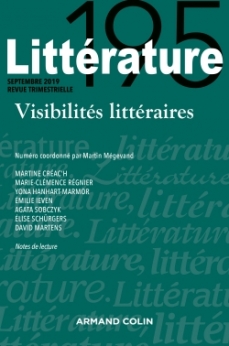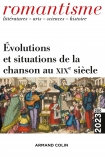
Littérature nº195 (3/2019)
Pour acheter ce numéro, contactez-nous
Recevez les numéros de l'année en cours et accédez à l'intégralité des articles en ligne.
L’Élégie de Troyes est consacrée à la commémoration de treize Juifs brulés sur le bûcher en 1288. L’article propose une lecture de ce texte enrichie par le recours aux Congés des poètes lépreux d’Arras, avec lesquels le poème présente une analogie thématique profonde et une structure comparable. Même si on ne peut pas parler d’influence, cette juxtaposition permet d’inscrire l’élégie dans un certain courant de la littérature française, qui se constitue au XIIIe siècle et où différents types de marginaux occupent une place privilégiée : celui de la poésie urbaine.
L’Élégie de Troyes is dedicated to the commemoration of thirteen Jews burnt on the stake in 1288. The article proposes an enriched reading of this text by resorting to the Congés of the Arras leper poets, with which the poem shares a deep thematic analogy and a comparable structure. Even though one cannot assign an influence, this juxtaposition allows to inscribe the elegy in a precise movement of French literature, which appears in the thirteenth century and in which different types of drop-outs hold an outstanding position: the movement of urban poetry.

